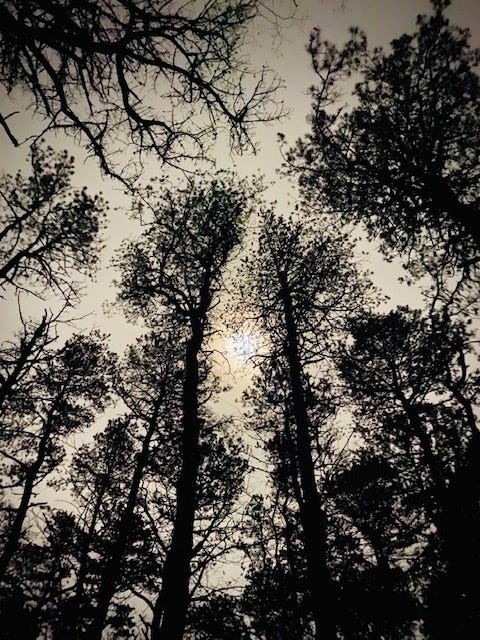“Everything seems to be up in the air at this time.” —Camper Van Beethoven
What has been historically a day of eating abundantly and relaxing with loved ones, like everything else, has been upended. We are creating new rituals — Zoom gatherings, food pantries, solitary walks and simple meals.
This holiday’s origins are not what I learned in school when I drew a hundred pilgrim hats for the Thanksgiving play. According to historian Heather Cox Richardson who writes the marvelous Letters From an American, Thanksgiving started in 1862, two years into the brutal Civil War, when Union soldiers and northerners were losing faith in the fight to abolish slavery. Leaders recognized the need to honor the sacrifices that had been made, the soldiers who had already died and to bring attention and reverence to what is and what could be. “Our Government and institutions placed in jeopardy have brought us to a more just appreciation of their value,” wrote NY Governor Edwin Morgan as he and 17 other governors adopted Thanksgiving as a state holiday.
The practice of gratitude is just that — finding the thanks not in spite of, but as a result of, events we did not anticipate. Gratitude is a primary tool in creating a more pleasurable life.
In his book, The Gratitude Effect, John DiMartini set about the challenge of listing as many positive things that came out of 9/11 as he could think of. While acknowledging the death and destruction, he also argued that it was the catalyst for people quitting jobs to pursue what they loved, moving closer to family, and a sense of collective humanity. Is it possible that a similar argument can be made during this pandemic? Yes to the ways in which we have been thrown off our footing but also the ways we are learning to lean into grief and loss, rage and anger. Is it also possible we are a bit more honest and clear headed about what we want our future to be? And, how we want to feel in this moment?
Gratitude heals us. At the neurochemical level, gratitude acts like a catalyst for neurotransmitters like serotonin, dopamine, and norepinephrine – the ones that manage anxiety and stress. A regular gratitude practice changes the wiring of our brain and makes us more content. It is a pillar of a pleasurable life.
One thing that Abraham Lincoln did not have in mind when he created the first national Holiday of Thanksgiving was what happens the day after. The dopamine and other hormones released in a day of delight, pleasure, indulgence leave us wanting more. Our economic engine makes full use of this. Beginning around the 1970s, today has become known as Black Friday. It will be followed by Cyber Monday. One could argue that capitalism is based on our hunger for more.
It is tempting to keep going. And we can. But first, digestion is in order. In the same way that it takes time to digest our meal, we need time to digest experiences, to savor, remember, relax into receiving all of what just was.
Digestion can look like a lot of different things. One of my favorites is sharing frames — snapshots of a moment that felt especially good, or one that you want to store in your deep memory banks. Sharing frames is a great way to end anything meaningful. “There was a moment when….” It’s become one of our go-to evening practices.
For me, there was a moment when the four of us went for an evening walk and the air was so still I could hear my heart beating.
We would love to hear your favorite frames. If it is in your pleasure, drop them in the comments below.
SJJ
From the Institute of Pleasure Studies
StoryCorps has been providing support for humans to connect through listening and storytelling for several decades. They have even created their own national holiday this week - The Great Listen. There is a fabulous list of questions and an app to record a friend, an older, a younger.
For more listening pleasure: Every Thursday evening starting in December, The World According to Sound is going to live-stream spatialized audio straight to the headphones of people listening together, all around the world. Attendees will be mailed eye masks and listening instructions for how to tune into programs with pieces made by musicians like Matmos and the Kronos Quartet, radio producers, and sound artists. The sounds will transport you to the streets of Cairo in the 1920s, into the resonating chambers of the Acqua Vergine aqueducts underneath Rome, upside down through a Goldberg Variation, and out onto a musical ice sheet in the Arctic.
The Pleasure of Giving:
Like gratitude, which releases a cocktail of pleasurable chemicals, giving can activate mirror neurons and light us up the same way as if we were the recipient. As we consider giving, history, responsibility and what we have to offer our communities we bring you these words from indigenous leaders at Seeding Sovereignty :
“November is recognized as Native American Heritage Month, a time that invites non-Natives to learn through the lived experiences of Indigenous folks throughout the so-called United States. We at Seeding Sovereignty honor this time by acknowledging and educating our communities about Truthsgiving; a way we aim to share our pasts, honor our present/presence, and be mindful of our futures, not only as the original stewards of these lands, but as communities working together to ensure our collective ability to thrive.”
Please consider supporting Seeding Sovereignty




